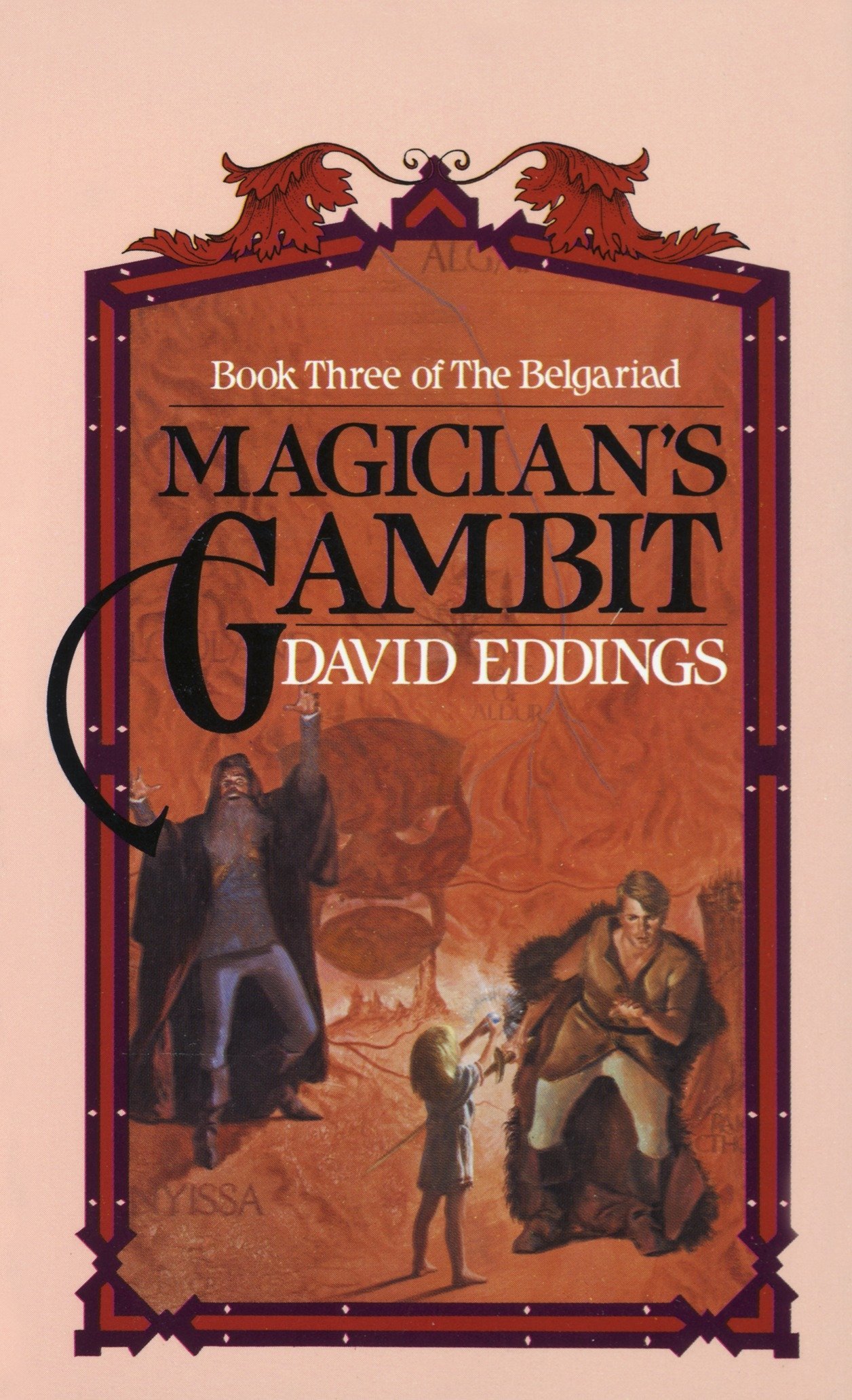 |
| A rendition of some Belgariad characters; image from here |
As I did with The Wheel of Time, today I look at The Belgariad as a whole. This five-book series was a fast read for me, done between March and May of this year. It follows the boy Garion, his Aunt Pol, Belgarath the sorceror, and others as they reclaim the stolen Orb of Aldur and confront the evil god Torak, who seeks to dominate the world and shape it in his image. Click on a book cover below to see my review of a given title:
 |
 |
 |
 |
 |
Each book was similar in pacing and rating (they each got an 'A' from me). After a shorter book one (346 pages), books two-five were impressively close in length (447, 446, 444, and 445 pages, respectively).
Thoughts on the Series
Published in rapid succession (from 1982-4), Publisher's Weekly called this pentalogy "one of the founding megasagas in modern English-language fantasy." Others agree that it marks a transition from the classic fantasies of old to the modern times. Though I'm not well-read in this genre, I can certainly see the hints of transitions from the older style to today's multi-volume epics.
This is a very straightforward 'coming of age' story, as Garion becomes aware of and involved in things much bigger than his previous life on Faldor's farm. I'm not sure it was always considered a young adult series, but it could be nowadays, as contemporary writings in this genre for adults tend to be more graphic.
What I liked:
- Quick story progression
- Fun and varied characters
- Interesting world with impression of depth
- No inappropriate language/content
- Occasional wit or profound comment
- Very 'human' depiction of the powerful (e.g. Belgarath gets in bad moods just like a typical human)
What I didn't:
- It seems robotic at times. Garion has a 'dry voice' in his head that basically tells him what to do at key moments. He seems to mature very slowly (if at all), accomplishing impressive feats mainly through being compelled.
- There can be stereotypes about different nationalities and genders ('all Arends are stupid,' 'all women are conniving')- voiced directly and even by allies- that are cruel.
- Confusing theology. The gods here are similar to Greek gods, with very human characteristics. They serve a higher authority (maybe the universe itself?), but it's all unclear or confusing. There's a character or two in the same vein- they are special but of unclear origin/etc.
Resources
There's not much out there on Eddings or his work. Your typical wikipedia entries exist (both 'normal' and fandom versions). Eddings wrote a sequel pentalogy (the Malloreon), two stand-alone entries (on Belgarath and Polgara, respectively), and a background/reference work (the Rivan Codex) which would be the main recommendations for fans of the series.
Conclusion
Overall, I enjoyed this story. It's simple but done well and appropriate for all ages. The five volumes don't stand alone; this is more like one book published in five parts.

No comments:
Post a Comment